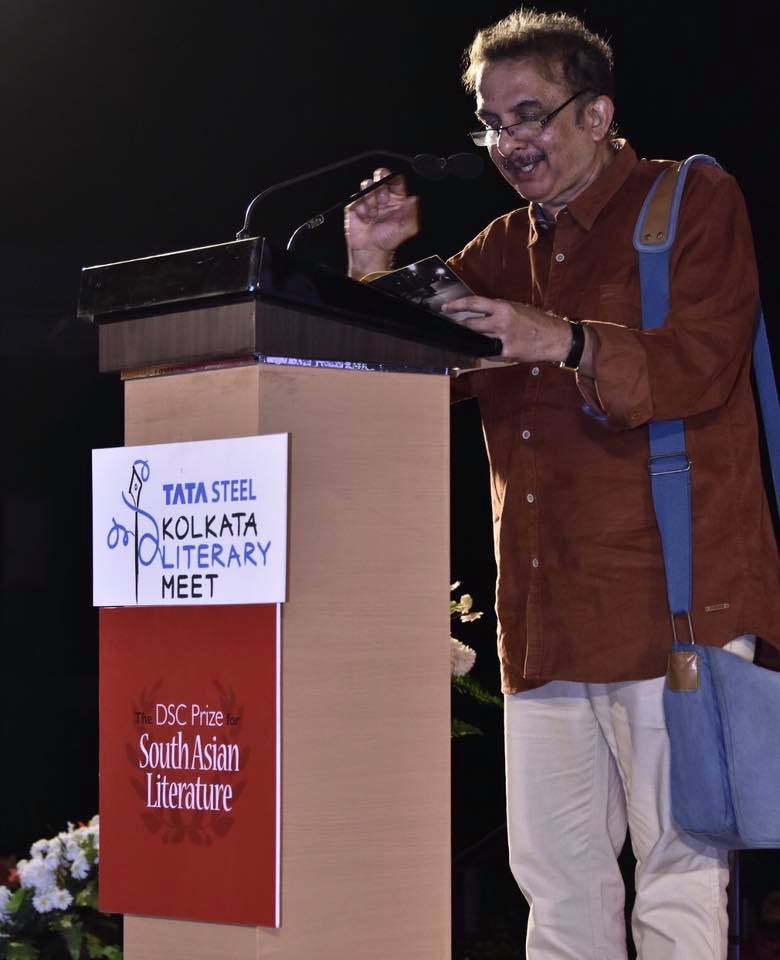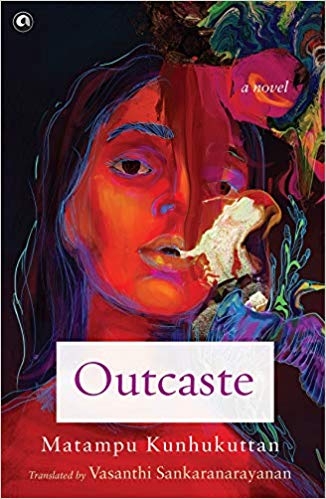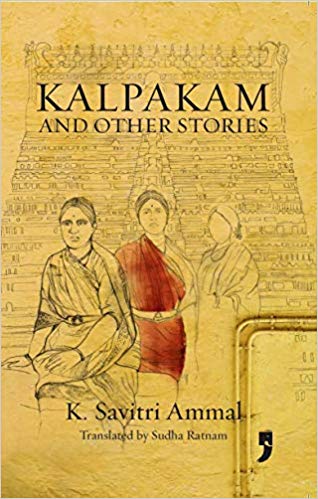An interview with Jayant Kaikini, winner DSC Prize for South Asian Literature 2018
The DSC Prize for South Asian Literature 2018 was awarded to Jayant Kaikini along with his translator Tejaswini Niranjana for their book No Presents Please. The winner was announced by the DSC Prize jury chair Rudrangshu Mukherjee at the Tata Steel Kolkata Literary Meet on 25th Jan, 2019, where eminent writer Ruskin Bond presented the trophy to the winning author and translator. Jayant Kaikini is a Kannada author and dramatist who has won the Karnataka Sahitya Akademi prize four times. He has also written regular newspaper columns, screenplays, dialogues and lyrics for Kannada films. Tejaswini Niranjana is a cultural theorist, translator and author. She is currently professor of cultural studies at Lingnan University, Hong Kong, Tejaswini Niranjana is a Sahitya Akademi prize-winning translator.
In the citation, jury Chair Rudrangshu Mukherjee, said, “The jury decided to award the DSC Prize for South Asian Literature 2018 to No Presents Please by Jayant Kaikini which has been translated by Tejaswini Niranjana and published by Harper Perennial. The jury was deeply impressed by the quiet voice of the author through which he presented vignettes of life in Mumbai and made the city the protagonist of a coherent narrative. The Mumbai that came across through the pen of Kaikini was the city of ordinary people who inhabit the bustling metropolis. It is a view from the margins and all the more poignant because of it. This is the first time that this award is being given to a translated work and the jury would like to recognize the outstanding contribution of Tejaswini Niranjana, the translator.”
The six shortlisted authors and books in contention for the DSC Prize this year were Jayant Kaikini: No Presents Please (Translated by Tejaswini Niranjana, Harper Perennial, HarperCollins India), Kamila Shamsie: Home Fire (Riverhead Books, USA and Bloomsbury, UK), Manu Joseph: Miss Laila Armed And Dangerous (Fourth Estate, HarperCollins, India), Mohsin Hamid: Exit West (Riverhead Books, USA and Hamish Hamilton, Penguin Random House, India), Neel Mukherjee: A State Of Freedom (Chatto & Windus, Vintage, UK and Hamish Hamilton, Penguin Random House, India) and Sujit Saraf: Harilal & Sons (Speaking Tiger, India)
No Presents Please: Mumbai Stories is not about what Mumbai is, but what it enables. Here is a city where two young people decide to elope and then start nursing dreams of different futures, where film posters start talking to each other, where epiphanies are found in keychains and thermos-flasks. From Irani cafes to chawls, old cinema houses to reform homes, Jayant Kaikini seeks out and illuminates moments of existential anxiety and of tenderness. In this book, cracks in the curtains of the ordinary open up to possibilities that might not have existed, but for this city where the surreal meets the everyday.

Here are excerpts from an interview with Jayant Kaikini conducted via email.
JBR: There is a loveliness of everyday life in your stories which convey the variety of people who live in Mumbai and yet you manage to capture the quietness of each person. How do you manage this so beautifully? Do you revise your stories often?
JK: I am deeply absorbed by the human world. May be there is a collective calm deep within, which binds us all and at the same time liberates us too. I don’t revise or chisel my stories. I write with a pen. I don’t type.
JBR: Are you a people watcher? How do you build characters especially of the women?
JK: We all are extensions of each other, like jigsaw puzzle pieces. We make sense only in the context of each other. Every individual is special. There is no deliberate attempt to build any character. I create an open space for them to evolve and grow on their own.
JBR: How do you develop plot in a short story? How do you manage to keep the tension in a storyline?
JK: It’s not an essay or a feature writing or a film script. Yashwant Chittal, eminent Kannada writer (whose novel Shikari is available in English translation now), used to say ‘I don’t write what I know. I write to know’. I belong to that school. You must get lost to find something new.
JBR: Why Mumbai? It is a massive melting pot of languages, cultures and dialects. I am guessing that the stories in Kannada probably preserved some of these inflections but English does not allow it. How do you come to terms with the flattening of the diction in English?
JK: Because Mumbai is Mumbai. The most liberating urban space where you feel free with a stranger. This city of plurality speaks in a ‘singular ‘ language of its own, like … “tereko, mereko”. I love it. Even the tone is distinctly homogeneous. So it is difficult to get it exactly in Kannada too. In a way each story by itself is a new language of images and expression.
JBR: Is the English translation exactly like the Kannada text or were there modifications made to the text?
JK: It’s exactly as the Kannada text, minimum deviation or modification. Maybe because Tejaswini Niranjana too is a ‘Mumbai chauvinist’ like me and a poet. Translation is always safe in the hands of a poet. Since a poet is deeply tuned to ‘unsaid’ of the text.
JBR: Oral storytelling is a way of life in India. In your case too although you speak Konkani, you opted to write in Kannada and now are translated in to English. Do you think being multi-lingual and familiar with diverse ways of telling stories informs the literary structure of your printed short story? If so, how?
JK: Multilingual sensibility is a precious virtue of our country. More so in a big city. In Mumbai I speak in my mother tongue Konkani at home, in Hindi with fellow commuters in the local train, in English with colleagues at the workplace and in English with my senior colleagues and come back home and wrote in Kannada. Dagdu parab, Antariksha Kothari, Mogri, Mayee, Toofan, and Madhuvanti are not Kannada speakers but they come into my stories and talk in Kannada. Isn’t it heartening? As Tejaswini points out, these stories break the stereo type of perceiving individuals only with their linguistic identity. As I said earlier, story itself is a new language.
JBR: Does the form of a short story define your search for a subject?
JK: I don’t search for subjects or stories. It is the other way. They are in search of me. Each story has its own body and soul. The shape of fish is hydro-dynamically designed for swimming. The shape of a bird is aerodynamically designed for flying. In the same way form and structure of a story is designed by its soul.
JBR: Do you think there are differences in the short story form of Kannada, Konkani and English?
JK: Differences have to be there. Ongoing life is ‘ unstructured’ and ‘non-literary’. Through the window of a story we try to make sense out of it. So each window has to be different in its viewpoint and aperture.
JBR: What is the principle of selection of these stories as some date from the 1980s and some are as recent as a few years ago? And yet the English translation are not arranged chronologically. Why?
JK: Though a bunch of stories, this book collectively works as a larger single fiction. Tejaswini and me impulsively picked 16 stories from my 5 anthologies, based on their variety and resonance. Order in which they are compiled, too was done jointly and impulsively.
JBR: What was the literature you were familiar with as a child and in your early days as a writer?
JK: The reader and writer within me was born in 1970’s when Kannada modernist movement was at its best. My father Gourish Kaikini was a writer, scholar, thinker, journalist and staunch radical humanist. So there was an overdose of literature at home and as a child I was not amused then. I started reading and writing when I went away from home to another small town for my college education. If I look back, I think it was to combat homesickness and culture shock of switching over to English medium from Kannada medium in education. Reading, writing, extracurricular activities nurtured my self-esteem in an unfriendly new environment.
JBR: Who are the writers you admire and who have influenced your writing?
JK: Yashwant Chittal, Shantinath Desai, A K Ramanujan, U. R. Ananthamurthy, P. Lankesh, Shivram Karanth, Kuvempu, Bendre, Thirumalesh . . . and many more have groomed and enriched my sensibilities and love for life and literature.
JBR: What has it been like winning the DSC Prize?
JK: It was unexpected but it is a good news for Kannada, short story form and the talent of translation. Any award is like a pat on the back of marathon runner from a cheering onlooker. You have to accept it with a smile and keep running. Pat is not the goal.
1 June 2019



























